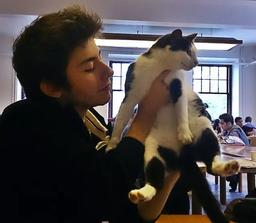In this lesson, you will learn about the copula -(y)ken. This suffix creates adverbs out of verbs and make adjectives/nouns predicates. Its meaning is close to "when" or "while".
It combines with many other suffixes, but for now we will only see it with aorist and adjectives/nouns. -(y)ken does not take personal markers, so we have to express the subject at the beginning of the sentence. Let's see how:
| Turkish | English |
|---|---|
| Ben çocukken (...) | When I was a kid (...) |
| Sen yolda koşarken (...) | While you were running on the road (...) |
| Kamil arabaya bakarken (...) | While Kamil was looking at the car (...) |
As in other suffixes beginning with (y), the y appears when the suffix is preceded by a vowel.
| Turkish | English |
|---|---|
| Ülkemiz bu haldeyken (...) | When our country is in this condition (...) |
Your questions are stored by us to improve Elon.io

